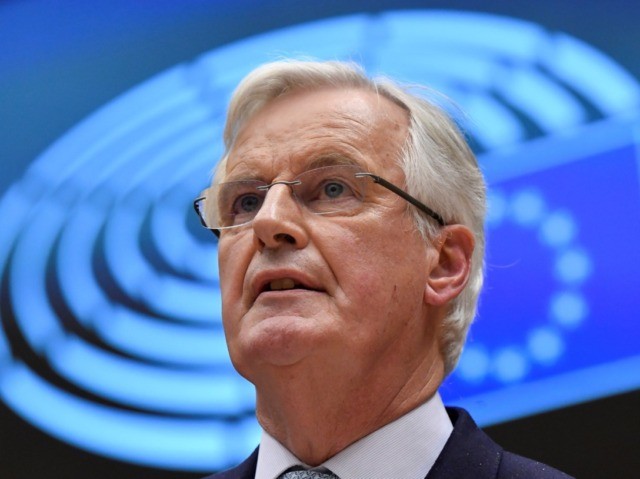The European Union’s Parliament has rubber-stamped the withdrawal agreement agreed between Brussels and London, a largely symbolic move which means the last administrative hurdle has been cleared before the United Kingdom departs the European Union on Friday night.
European Parliament President David Sassoli signed the withdrawal agreement on behalf of its members after the chamber consented to the document Wednesday evening, having voted 621 in favour to 49 against, with 13 abstentions. He said he would give the document to the European Commission for the final administrative work for Brexit to take place on Thursday, before the United Kingdom formally withdraws at midnight — Brussels time — on Friday.
The chamber burst into a rendition of traditional Scottish song ‘Auld Lang Syne’ at the vote was announced, chosen as an anthem for the event by anti-Brexit politicians as a symbol of defiance against the decision of the British people to withdraw from the European Union, made in 2016 and now being followed through with some 1,316 days later.
The Parliament could have, theoretically, declined to ratify the agreement. While this was never a likely outcome — the house generally votes the way it is instructed to by the European Commission — what would have happened next is unclear. In some cases, the powerful Commission which creates the legislation the Parliament votes on can simply ignore the result and push through their intended course of action regardless.
In this case, however, the vote was not whether to permit Brexit or not — which will take place on Friday with or without the endorsement of the European Parliament — but rather on whether to accept the Withdrawal agreement. With the vote, Britain leaves in an established framework which keeps the country tied to the European Union for the rest of 2020 at least, while the country thrashes out a new trade deal with the bloc. Without the vote, the country would have left on World Trade Organisation rules.
Speaking earlier in the day, Brexit leader Nigel Farage joked that he would consider corralling a coalition to vote against the Brexit deal, forcing a full Brexit in effect. But he said he would not, noting he was expecting Prime Minister Boris Johnson to keep his word over the coming year. Mr Farage said: “It isn’t going to happen. I suspect there will be quite a large number of abstentions in the chamber today, but very clearly it is going to pass so that’s my position. I don’t like it, but I take the Prime Minister’s word. I take him as a man of honour, you see. Not everyone does, but I do.”

COMMENTS
Please let us know if you're having issues with commenting.